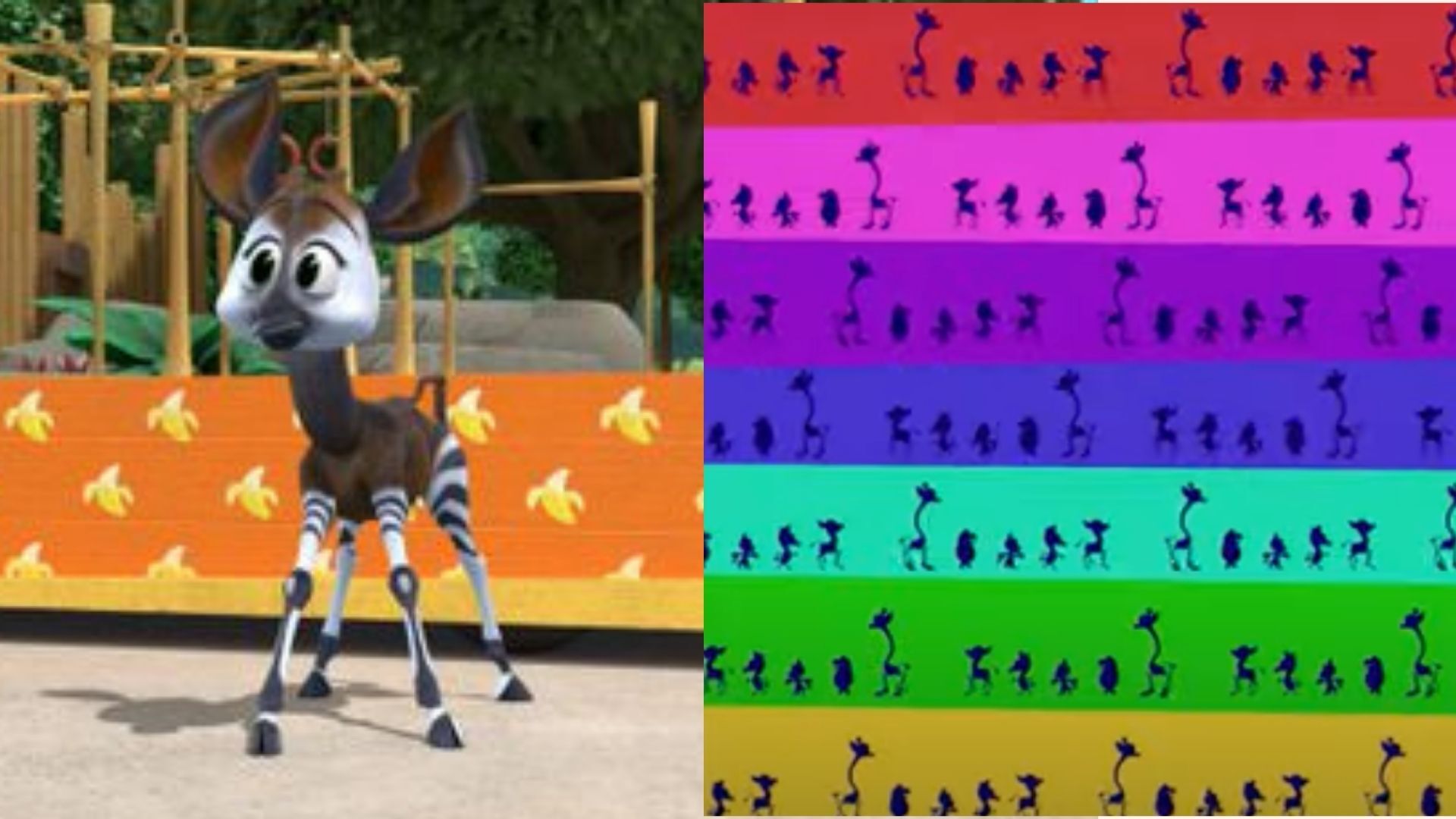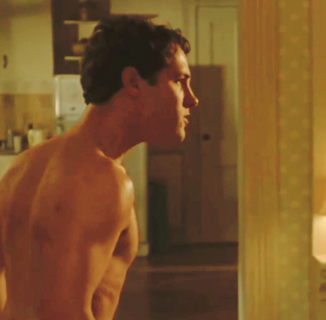Meet Odee the Okapi!
Neither Zebra nor giraffe, neither he nor she, but living happily in between, Odee is an okapi who loves who they are.
The Madagascar spin-off show “Madagascar: A Little Wild” features Odee, its first non-binary character, within the upcoming third episode of the third season, titled “Whatever Floats Your Boat.”
This very special Pride-themed episode follows the animals at Central Park Zoo as they prepare for the hotly-anticipated Animal Pride Parade. Non-binary broadway star Ezra Menas gives Odee their voice, in a first-time voice acting role for the Jagged Little Pill star.
The designated animals gather around their respective floats, but when Odee arrives, Marty the Zebra can’t decide which float the okapi should ride on. As an Okapi, Odee has stripes that mirror those of Marty the Zebra, but they also have a long neck like a giraffe.
Before confusion ensues, Odee volunteers their own understanding of who they are: “It doesn’t matter what we are, as long as we’re proud of who we are.”
With a script partly written by queer writers and consulted on by GLAAD, the episode helps maneuver the intricacies of identity in a visual way that’s easily understandable for an audience of all ages. By producing an articulate script that introduces a non-binary character to younger viewers, the show offers an important, clear message about the gender binary: you don’t have to choose between being this way or that, between being swaddled in blue or pink. The in-between is a great place to be.
The casting of non-binary performer Menas also sends an important message. Menas themselves elaborated on the episode’s queer-friendly lesson for Entertainment Weekly, stating: “We’re so indoctrinated with the gender binary and gender stereotypes. If you’re a man, this is your path. If you’re a woman, this is your path.”
They went on to explain how the character of Odee defies the need for any path predetermined by a gender binary, “I think seeing Odee and the care from Odee’s friends would have made me not feel so isolated,” Menas said. “At times, I felt so isolated in my experience. I didn’t know I was non-binary as a kid. I didn’t even have that language as a kid. If I would have seen this when I was a kid, I don’t even know what I would’ve done.”
Seeing queer kids feel acceptance is the stuff of tears, and Menas gladly admits the episode brings up a lot emotions for them, “This kind of acceptance and love and celebration, I think, is the biggest takeaway from this episode. It’s just a beautiful thing. Makes me cry.”
Menas also noted the importance of GLAAD stepping in to consult on the character. “They care about the authenticity,” they explained. “They care about how it’s going to impact not only non-binary youth, but people who are not non-binary learning about non-binary identities and accepting people for who they are.”
Odee is more than a non-binary character on a TV screen: they’re a reminder of how much kids can benefit from seeing gender diversity in the world, and in media. Odee’s message couldn’t be simpler, or more universal: always be kind and be yourself when you can: you could just inspire someone to be their truer, kinder self.
Help make sure LGBTQ+ stories are being told...
We can't rely on mainstream media to tell our stories. That's why we don't lock our articles behind a paywall. Will you support our mission with a contribution today?
Cancel anytime · Proudly LGBTQ+ owned and operated
Read More in Entertainment
The Latest on INTO
Subscribe to get a twice-weekly dose of queer news, updates, and insights from the INTO team.
in Your Inbox














